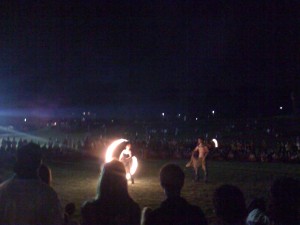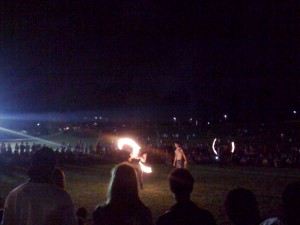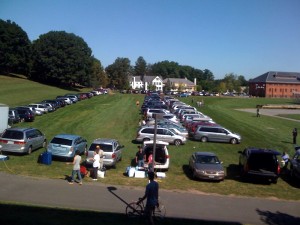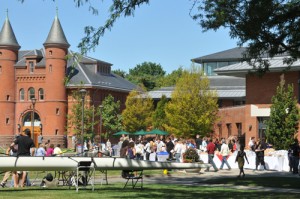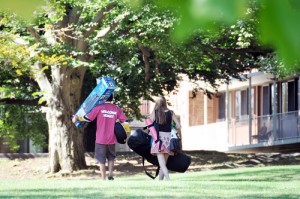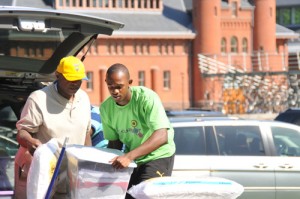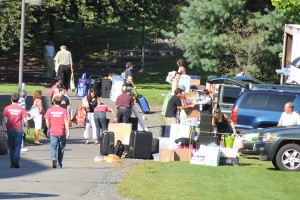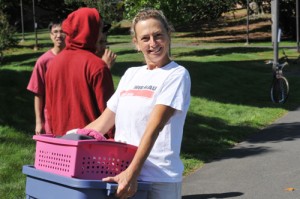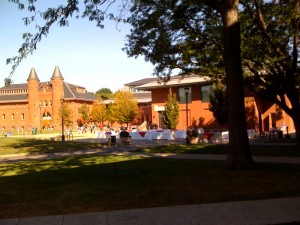This week is the 100th anniversary of the birth of one of America’s great film directors, Elia Kazan, and Wesleyan will mark the occasion with a series of films. We begin on Saturday, September 12th at 8:00 pm with Boomerang! (1947). Kazan, whose work with theater was also of decisive importance, presented his papers to Wesleyan in 1968, and for some time he had an office in Olin Library. For decades scholars have been using the papers in their research, one of the many extraordinary collections in the Wesleyan Cinema Archive. You can hear more about Kazan and the Archive on Saturday when Jeanine Basinger, Corwin-Fuller Professor of Film Studies, introduces Boomerang! at 8 pm. For more information on the Kazan festival, see http://www.wesleyan.edu/filmstudies/specialevents.html.
In conjunction with the Kazan celebrations Mark Longenecker is teaching a film studies class based in the archival holdings. This is one of the dozens of classes added to the curriculum this year, most of them with enrollments under 20. I remember as a student feeling frustrated when I didn’t get the class I most wanted, but then I wound up in another course and it turned out to be the best thing that happened to me that semester. Perusing the course catalogue, I’ve seen offerings that combine science and service learning, politics and history, literature and music. Barry Chernoff, who is leading our efforts for planning the College of the Environment, is teaching “Conservation of Aquatic Ecosystems.” This a science class that requires students to devote a few Saturday mornings to fieldwork to complement lectures and labs. Fieldwork in a boat sounds like a great way to spend a Saturday.
Leah Wright, who has just joined the history department, is teaching a class on Black Conservatism. The class examines how black conservatism shifted, transformed, and evolved over the course of American social and political development. Lynn Westling teaches an introductory Physics course for non-majors called “Physics for Presidents.” It examines “mathematical and physical models that explain quantitatively how our world works.” The course discusses issues in the political sphere that depend on an understanding of physics, from nuclear weapons to alternative energy.
I’m teaching a new class this term: Topics in the Philosophy of History. It’s a small seminar to complement my large film class in the spring. We’ll be working on issues connecting memory and history, psychoanalysis and trauma, and photography and representation.
I had lunch today with Howard Needler, who has been teaching in the College of Letters since the late 1960s. We talked about Wesleyan old and new, sometimes emphasizing the great changes and at other moments marveling at the continuities. The College of Letters (like CSS and CHUM which all celebrate their 50th anniversaries this year) has always attracted talented, creative students interested in ideas and how they take shape over time. Professor Needler is teaching Dante’s Divine Comedy this year: a full year on this landmark text. The class is fully subscribed. Lucky students, I thought!
[tags]Elia Kazan, film series, classes, Jeanine Basinger, Mark Longenecker, Barry Chernoff, Leah Wright, Lynn Westling, Howard Needler, College of Letters[/tags]



